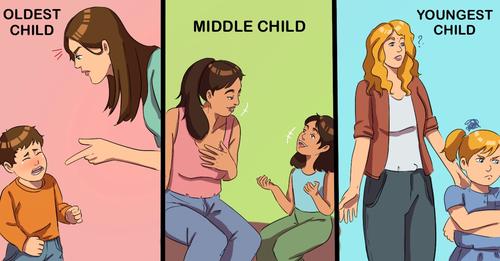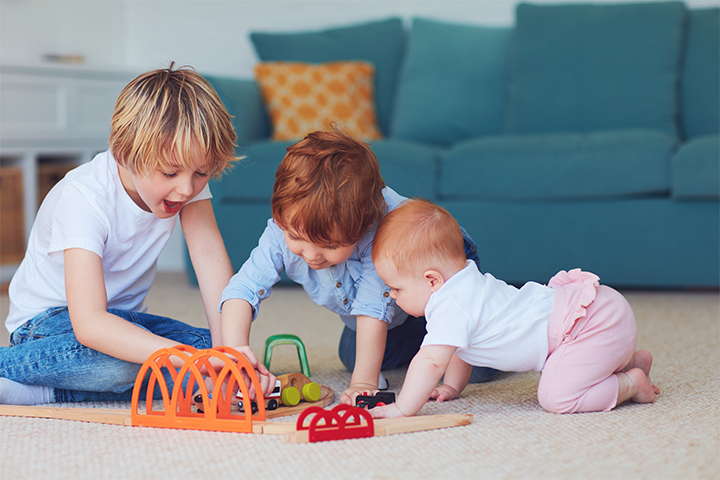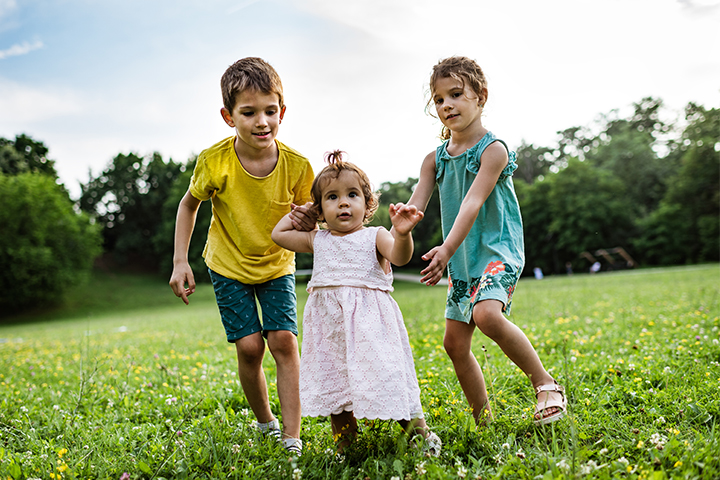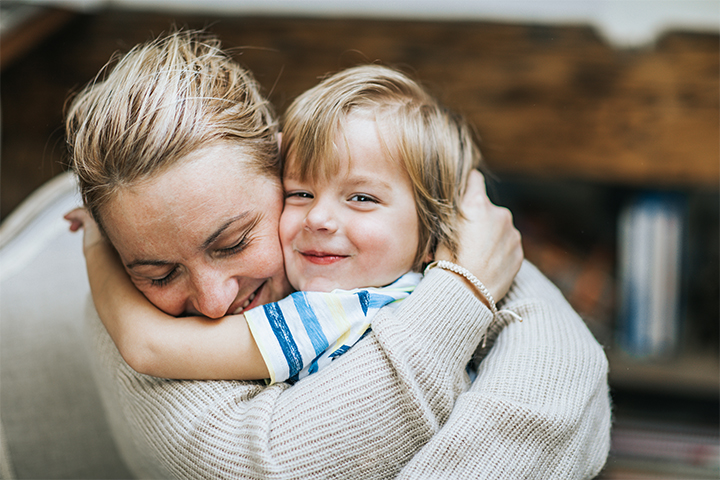
Upbringing plays an essential role in crafting your overall personality. Your parents, siblings, and elders influence your ideology and help you look at different aspects of your life. In addition to this, your birth order too can be used to describe you. Yes, you heard it right. The eldest will indeed have a different point of view from that of an only child. To keep it more straightforward, let us look at the personality traits of each child according to their birth order and how it reflects in their parenting techniques. So without wasting any more time, let’s dive right into it.
1. The Oldest Child (The Leader)
The Oldest are the ones who might eventually achieve everything in life. They might perform better academically and exhibit more outstanding leadership and productivity. They are diligent, disciplined, trustworthy, and dedicated. While some older siblings have a tremendous desire for acceptance, which causes them to grow up satisfying others (sometimes at others’ expense), other individuals are overachievers, hard workers, and cutthroats. Many first-born children are perfectionists. They take on so many duties that things can get out of hand. They may set unattainable objectives, need to handle criticism better, can sometimes be pessimistic, and might even get crushed by failure.
As Parents:
If you’re the eldest, your kids will probably need to live up to your standards of perfection. You’ll remember your younger siblings’ behaviors when you become a parent. For instance, if your younger sibling feels unheard often, you might recognize this when parenting your kid and seek their opinions more frequently. Or you might have difficulty as a parent managing a newborn in your own home if you often feel bothered by your younger sibling or brother.
2. The Middle Child (The Independent)
Typically, they have personalities that are the opposite of the eldest. If the first child is a lone wolf, the second child will have many friends. The second child may be less driven if the first child is. The middle child frequently feels like they are left out since the elder and younger kids receive more attention; as a result, they seek validation from everyone else in the world or their friends. Second or middle children are frequently highly outgoing and make excellent peacemakers. They gain skills in negotiation and bargaining. On the other hand, they tend to be self-reliant, free-spirited, and occasionally rebellious. They learn to hold back on their ideas and feelings since they don’t get enough attention as others do, making them introverts.
As Parents:
Since you’re the middle kid, you won’t pass hasty conclusions onto your kids. Instead, you’ll be happier paying attention to them and considering both views on any issue.
You’ll base every decision you make on what you believe is suitable and beneficial for the entire family. You’ll work extra hard to ensure that your kids feel addressed and recognized since you understand what it’s like to be excluded.
3. The Youngest Child (The Carefree)
The youngest children grow up with uncertainty, being adored one moment and made fun of the next. They are blamed for being spoiled since they enjoy the advantages that their siblings never received. This causes inevitable outbursts and a desire to want things right away. They might start acting like “clowns,” seeking attention without thinking about the outcomes. The last child born is frequently characterized as lively, lovable, empathetic, and outgoing but moody, careless, and self-centered.
As Parents:
Being the youngest, you will push your children to seek adventures. When deciding what is best for your kids, you don’t stick to widely accepted beliefs and rely on your gut. The lack of rules in your upbringing will make it difficult for you to set them in your household. But keep in mind that raising kids requires following regulations. Therefore, gaining organizing abilities and a basic understanding of structure is better. You might sometimes be overly kind to your kids, but remember that this isn’t always the best route.
4. The Only Child (The Self-Entertainer)
They are known as “lonely onlies” because they typically struggle to interact with other children due to a lack of social skills despite receiving a lot of love and attention. They relate to persons much older or younger more quickly as they get older because they so strongly identify with the beliefs of their parents. They may be frustrated at being forced to grow up as little adults without experiencing proper childhood because their lives are frequently very controlled during childhood. Only children experience a high level of family attention as they grow up and tend to be responsible, competitive, and detail-oriented. However, they can be seen as judgmental or bossy because they have high expectations for themselves and others.
As Parents:
Starting your own family may present challenges if you are an only child. You can feel out of place because you’ve never had to “raise” a younger brother and don’t know how to share everything you have. However, suppose you chose a “youngest child” as your spouse. In that case, you’ll get along well together because of your tendency for organization, and their carefree attitude will make for a beautiful balance. Remember that you need time for yourself. You were used to having your time and space as a child, so if your family members now respect that, you’ll prosper.
How you have been raised will mold your personality, and you’ll also look forward to taking care of a few rules and regulations by which you’ll raise your children. Hopefully, you’ll relate to some of these traits and results and work around your kids accordingly. In the comment section below, let us know which position you fall on birth order and how it impacts your personality. Happy parenting!




